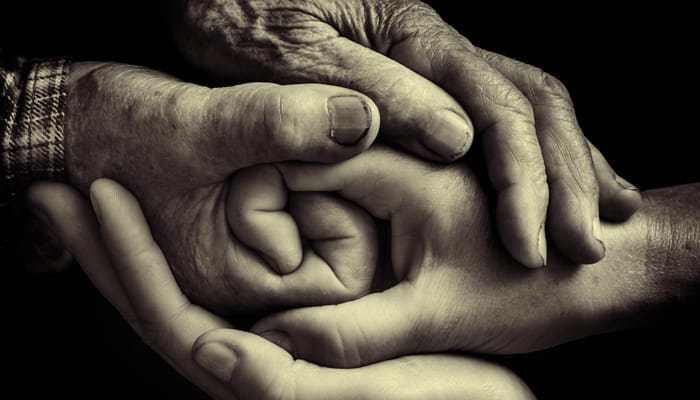Category: Blog
Blog: Standing with Standing Rock
By Isa Gucciardi, Ph.D. and Laura Chandler
The brutality that has occurred at Standing Rock for so many months now reminds us of a history steeped in broken promises, outright lies, theft, and genocide. This is not new, yet it persists in new ways. When indigenous peoples lost their lands over and over again to the insatiable European appetite, a precedent was set; one that held nothing and no one sacred. Now history is repeating itself in North Dakota where the Sioux Nation is making another brave stand in the face of overwhelming force. But this time it is not just the Sioux who have gathered to protest and defend what is sacred.
Blog: Integrity in the Face of Hate, Separatism, Exclusion
By Isa Gucciardi, Ph.D.
This week has been difficult for many people who are concerned about the resurgence of hate crimes and the general mood of separatism and exclusion that seems to have taken hold across the country. The U.S. is not the only country where this kind of separatism has occurred. The Brexit vote in the United Kingdom was fueled by the same fear and rejection of those who are different. And this is not the only time in history where there has been a strong surge of nationalist ideology driven by hatred of those who are seen as “other.”
Blog: Healing the Divide: How to Find Our Way Back From Negative Intention
By Isa Gucciardi, Ph.D.
For the last year, our psyches have been under attack. Every waking moment of public life has been a bombardment of political partisanship and bellicose assertions. Even those of us who unplug from television and other forms of media have not been immune to it. There has been a general sense of unease and fear in the air and no matter which side of the political aisle you take your seat, you are bound to be feeling some sadness, confusion, or anger as a result of the accumulation of negativity experienced this past year.
Blog: Ask Isa: Setting Boundaries to Negativity
By Isa Gucciardi, Ph.D.
Question: I would like to know what you think about the idea of people being a mirror to us. For example, if you find yourself irritated by someone who is always crabby with you, are they a mirror to you? Or are you just meeting someone crabby or irritating?
I really appreciate this question. Because so many of us, once we have dedicated ourselves to the goal of becoming more conscious human beings, can find it challenging to discern how to use everyday difficulties as the means for moving toward this goal.
Blog: Exploring the Unknown: Plants as Guides
By Isa Gucciardi, Ph.D.
In my previous post, I mentioned giving a lecture on shamanic healing to Integrative Medicine students at the University of California, in Berkeley. Many students had questions about the traditional shamanic use of plants that alter the state of consciousness and offer insights beyond an individual’s normal perceptual capacity. These students had ingested such psychotropic plants “recreationally,” and as they tried to integrate their experience into their everyday life, questions had arisen for which the students did not know how to get answers.
Blog: Exploring the Unknown: Dreams
By Isa Gucciardi, Ph.D.
I have been a guest lecturer in the Integral Medicine class at the University of California at Berkeley every year for the last ten years or so. Sometimes I lecture on alternative therapies like Depth Hypnosis, and sometimes on methods of healing that are found in shamanic cultures. During the past few years’ lectures, the students have really perked up when I have talked about the way in which dreams are viewed in shamanic cultures. The students are always surprised to hear someone actually talk about their dreams as being an important aspect of their experience.
Blog: Ask Isa: Aging and Radical Self-Acceptance
By Isa Gucciardi, Ph.D.
Question: When it comes to maintaining one’s aging body, where is the line between self-love and self-loathing?
I don’t consider maintaining your body an act of self-loathing unless you are doing it in response to some kind of negative view or thinking. You have to look at the motivation behind what you are calling maintenance.
Blog: The Two Truths: Finding Meaning in Difficult Situations
By Isa Gucciardi, Ph.D.
In a recent dinner conversation with friends, the Buddhist concept of the Two Truths came up. In Buddhist philosophy, the Two Truths offers an explanation of the nature of reality. The discussion wound around to how I introduced adapted elements of the Two Truths to students in the Depth Hypnosis Foundation Course. This adaptation is a bit like an overview, making the concept a little easier to grasp and apply in a Western context.
Blog: Ask Isa: Vulnerability
By Isa Gucciardi, Ph.D.
Question: You have said that there is power in the vulnerability inherent in major life transitions but I have a hard time understanding how that is possible. Would you explain this more?
Blog: Ask Isa: Overcoming Guilt as a Reaction to the State of the World
By Isa Gucciardi, Ph.D.
Question: I feel very guilty about the state of the world and my relatively good life. I have so much and others are in such pain and have so little. My response is to over-give in an effort to help, but it never seems to be enough and I just end up feeling worse about myself and about the state of the world. How do you live with the knowledge that so much is wrong in the world and then not do something about it?
Blog: Journey On It: More on Healing with the Journey
By Isa Gucciardi, Ph.D.
The shamanic journey works on the level of epiphany. Similar to muscle memory when we learn to hit a tennis ball or ride a bike, the realization that comes in the journey is beyond the rational mind. It is beyond thought. When we learn something at this level, it stays with us and we have the opportunity to change long held patterns of behavior, and shed ways of being that no longer serve us.
Blog: Journey On It: Journeying for Healing
By Isa Gucciardi, Ph.D.
In a traditional setting, the shaman would align with the forces of the Earth in order to bring organization and guidance to human affairs. People today are so disconnected from the natural world and from their own inner worlds that the spirit of inquiry for the modern journeyer needs to focus on reconnection. In my Shamanic Journey workshops, I help students address issues of imbalance as they work with the journey to deepen their connection to their own inner guidance and personal power.
Blog: Journey On It: Inner Guidance
By Isa Gucciardi, Ph.D.
In traditional shamanic practice, the journey was taken by the shaman to understand and connect with the power of the Earth. The shaman became empowered through the process of this quest and used this power to aid the community through ceremony, healing, and divination. Shamans use a repetitive sound to alter consciousness and then focus their attention inward. The most common sounds used for the shamanic journey are drums and rattles.
Blog: Journey On It: Reconnecting with the Earth’s Wisdom
By Isa Gucciardi, Ph.D.
In societies whose stories and wisdom emerge from the Earth, the Earth was often understood to have two important aspects to it: the unseen and seen. This meant that every tree had its physical aspect in the form of the tree that we can see with our five senses. But it also had another, more hidden one. This aspect is often referred to as the ‘spirit’ of the tree.
Blog: Journey On It: Finding Our Way Home
By Isa Gucciardi, Ph.D.
The Journey is a process of going inward that helps us discover who we are and what our relationship is to the world around us. Seekers trying to understand the mystery of their experience can be found in every culture that has existed on the planet. Different societies have different names for these seekers – medicine men, medicine women, the ones who cure, the ones who know. Cultures with these kinds of references for their seekers tend to be cultures that exist closer to the earth.
In cultures whose traditions are closely tied to the natural rhythms and processes of the Earth, the Earth itself is the place where all inquiry begins and ends. In order to know when to plant successful crops, its rhythms must be measured. In order to measure its rhythms, seekers have looked skyward to measure the Earth’s rhythms against the patterns of the sky.















